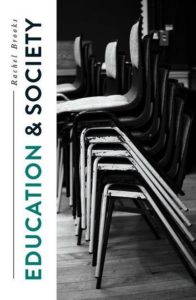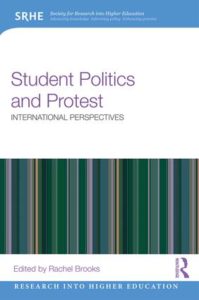Monday January 8 2018
School of Geography and the Environment, University of Oxford, South Parks Road, Oxford, OX1 3QY, UK (Gottman Room)
Kindly sponsored by the Economic Justice and Social Transformation research cluster, School of Geography and the Environment, University of Oxford
9.30 – 10.00am: Registration
10.00 – 11.00am: Welcome and Keynote 1
‘Spatial imaginaries’ and the transition to university: an intersectional analysis of class, ethnicity and place (Michael Donnelly, University of Bristol).
11.00 – 1.00pm: Parallel Sessions
1a (Gottman Room)
i. Mobile preschools, mobilities and materialities (Danielle van der Burgt and Katarina Gustafson, Uppsala University)
ii. Moving beyond immobility: narratives of undergraduate mobility at the ‘local’ college (Holly Henderson, University of Birmingham)
iii. We’re going on a journey: materialities and mobilities in the Outward Bound Trust (Jo Hickman Dunne, Loughborough University)
iv. Building colleges for the future: pedagogical and ideological spaces (Rob Smith, Birmingham City University)
v. The construction of hypermobile subjectivities in higher education: implications for materialities (Aline Courtois, University College London)
1b (Gilbert Room)
i. Materiality and meaning-making: towards creative mapping praxis on ‘post-conflict’ Belfast (Amy Mulvenna, University of Manchester)
ii. Materiality and the formation of transnational identities among British Ghanaian children schooling in Ghana (Emma Abotsi, University of Oxford)
iii. The school bus as agentic assemblage (Cathy Gristy, Plymouth University)
iv. Learning ‘the feel’ in the wooden boat workshop: material perception as understanding (Tom Martin, University of Oxford)
v. Relational mobilities: global citizenships between international ad local private schools (Sophie Cranston, Loughborough University)
1.00 – 1.45pm: LUNCH (Gottman Room)
1.45 – 2.30pm: Keynote 2
Choreographies of belonging: Reimagining ‘local’ students’ everyday (im)mobiities in Higher Education (Kirsty Finn, Lancaster University)
2.45 – 4.45pm: Parallel Sessions
Session 2a (Gottman Room)
i) International study in the global south: linking institutional, staff, student and knowledge mobilities (Parvati Raghuram, Open University)
ii) Higher education mobilities: a cross-national European comparison (Rachel Brooks, University of Surrey)
iii) Transnational encounters. Constructions of schools and (post)colonialism across continents 1945 – 1975 (Ning de Conick-Smith, Aarhus University)
iv) The space in-between: the materiality and sociality of the international branch campus in China (Kris Hyesoo Lee, University of Oxford)
v) Materialities and (im)mobilities in transnational capacity-building projects in higher education (Hanne Kristine Adriansen, Aarhus University)
Session 2b (Gilbert Room)
i. ‘In two places at once: academics with caring responsibilities, conference mobility and the role of communication devices’ (Emily F. Henderson, University of Warwick)
ii. Data and school spaces – materialisations, circulations and temporalities (Matt Finn, Exeter University)
iii. The role of technology in shaping student identity during transitions to university: how technology is affecting the way students experience and conceptualise the university as a social, academic and physical space (Harry T. Dyer, University of East Anglia)
iv. Making space for academic work (Mary Hamilton, Lancaster University)
v. Between omnipotence and immobility: a comparison of banking, Hollywood and further study as popular pathways amongst graduates from an elite university in New York (John Loewenthal, Oxford Brookes University)
4.45 – 5.30pm: Closing Remarks; Book Launch and Wine (Gottman Room)
 following chapters:
following chapters:
 University of Surrey, 26th June
University of Surrey, 26th June Call for Papers: Symposium on ‘Constructing the higher education student: understanding spatial variations’, Royal Geographical Society-Institute of British Geographers Annual Conference, 29th August-1st September 2017
Call for Papers: Symposium on ‘Constructing the higher education student: understanding spatial variations’, Royal Geographical Society-Institute of British Geographers Annual Conference, 29th August-1st September 2017 The first decade and a half of the 21st century have witnessed protests by students across the globe. They have occurred in places as diverse as Germany (2009-2013), California (2009), Chile (2010-13) and Canada (2012), as well as those that happened in London (most famously in 2010, but also again, in 2016). Social commentators have speculated whether this is part of a worldwide trend, in which students are taking on the activist identity of the 1960s. Some have also asked whether student protest has now become globalised – pointing to the rise of student movements in a relatively short and concentrated period of time, and also the way in which social media has appeared to galvanise students across disparate geographical locations. Indeed, it is notable that the Twitter hashtag #RhodesMustFall, which originated in South Africa, was taken up with considerable energy by students in the UK. Moreover, some researchers have argued that new technologies have ushered in new forms of political activity, which rarely respect national borders.
The first decade and a half of the 21st century have witnessed protests by students across the globe. They have occurred in places as diverse as Germany (2009-2013), California (2009), Chile (2010-13) and Canada (2012), as well as those that happened in London (most famously in 2010, but also again, in 2016). Social commentators have speculated whether this is part of a worldwide trend, in which students are taking on the activist identity of the 1960s. Some have also asked whether student protest has now become globalised – pointing to the rise of student movements in a relatively short and concentrated period of time, and also the way in which social media has appeared to galvanise students across disparate geographical locations. Indeed, it is notable that the Twitter hashtag #RhodesMustFall, which originated in South Africa, was taken up with considerable energy by students in the UK. Moreover, some researchers have argued that new technologies have ushered in new forms of political activity, which rarely respect national borders. Student Politics and Protest: International Perspectives
Student Politics and Protest: International Perspectives